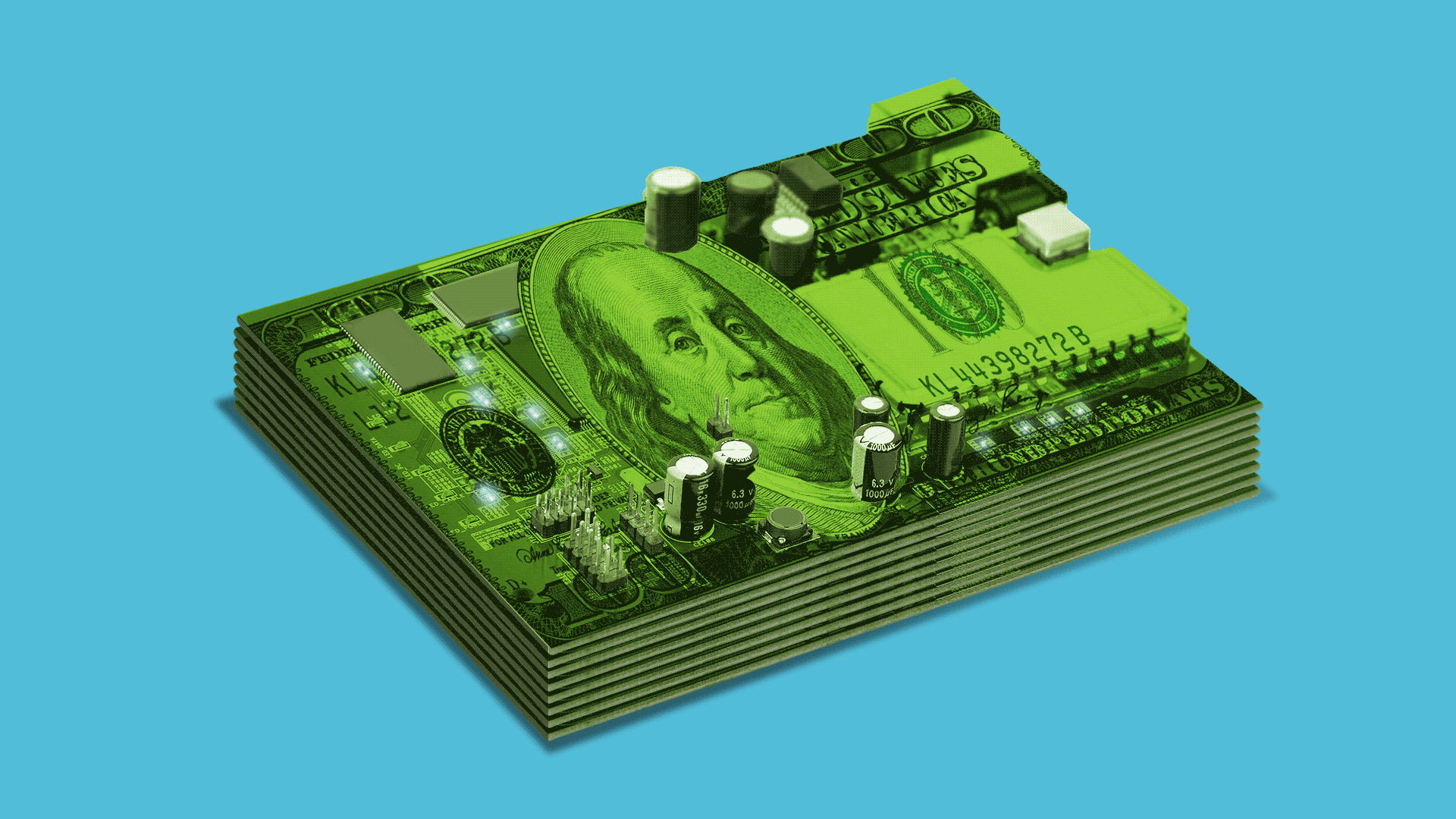| Inflation isn't always and necessarily a bad thing. It's one of many variables in the economy, and its presence helps some groups of people and harms others. But that kind of nuance is getting lost in the present debate, writes Axios Capital author Felix Salmon. Why it matters: There are two well-defined inflation camps at this point. Both of them take it for granted that inflation is, broadly speaking, a bad thing. But that's never true for everyone, and always depends on how you define it. Where it stands: The messaging from the Fed and the Biden administration is clear. Consumer price inflation has been low — too low, in fact — for many years. As we recover from the pandemic, it might be high for a while. But that's likely to be temporary, and nothing to worry about. - Inflation hawks, led by Larry Summers, disagree and warn of inflation accelerating out of control. Invariably they conjure up images of the 1970s.
The big picture: Recent decades have seen a lot of the kind of inflation that's good at entrenching the upper-middle classes. Asset-price inflation — a roaring stock market and housing market — has made the rich richer, while leaving much of the country behind. Rampant inflation in college tuition and healthcare costs has similarly privileged the few who can easily afford such things. - Wage inflation is disliked by corporations but loved by workers.
Context: Precisely because inflation last happened so long ago, it has become much scarier than it probably should be. - If inflation is driven by wage hikes for people earning less than $60,000 per year, it's not even clear that it would be a net negative for the country as a whole.
Flashback: The 1970s were half a century ago, a world of oil crises and the Vietnam War and a truly astonishing number of aircraft hijackings. China was still decades away from disrupting the international labor market, and the internet was still mostly just a U.S. defense project. The bottom line: Inflation wasn't the main reason people disliked the 1970s. If the 2020s do see inflation, then the 1970s won't be the result. Go deeper | 








No comments:
Post a Comment